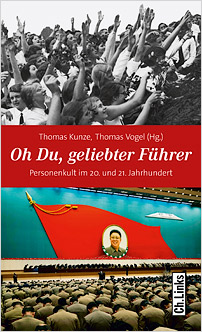review
The editors of this absorbing book describe how personality cults have existed since the time of the Ancient Egyptians and predict that they will always be a part of human society as they respond to a fundamental human need. Human nature seems to crave cultic heroes, and this is perhaps especially so in the modern age of terrorism and uncertainty.
Each chapter of the book analyses a different type of personality cult. There are: great dictators (Hitler, Stalin and Mao Zedong); Communist imitators (the leaders of East Germany, Ceausescu, Hodja, Tito and the Kim dynasty in North Korea); populists (Kemal Atatürk, Evita, Castro, Chavez and Mandela); nationalists, careerists and religious leaders (Gaddafi, Ben Ali, Mubarak and Turkmenbashi); monarchs and a self-styled emperor (Kaiser Wilhelm II and Bokassa); and figures from parliamentary and constitutional monarchies (including the Duchess of Cambridge). Each chapter considers the reasons for the development of the particular cult, its manifestations and durability. The final section addresses the wider phenomenon, including the use of mass media, huge statues and artistic objects to perpetuate cultic status. Personality cults are used for diverse ends, including stabilising dubious regimes, establishing national identity and whipping up popular support. In many cases they serve to disguise uncertainty about the political nature of a personality or regime. The authors describe how cultic despots such as Hitler demonstrate pathological narcissism. Such cults only last as long as the regimes they support, while more rational and modest leaders such as Tito and Bismarck continue to be revered after they are gone and others, like Atatürk, only acquire cult status after their time. The cults around Castro and Chavez flourished in response to their fierce opposition to US interference. Then there are those few genuinely loved and admired subjects of personality cults, such as Nelson Mandela and the Duchess of Cambridge. Cults which develop in democracies, such as that of the Duchess, are apparently based on a positive relationship between the rulers and the ruled.
This is a serious, jargon-free socio-political book which is logical, well-argued and easy to read. It would be accessible to any reader interested in understanding an important historical and topical phenomenon.



All recommendations from Spring 2014